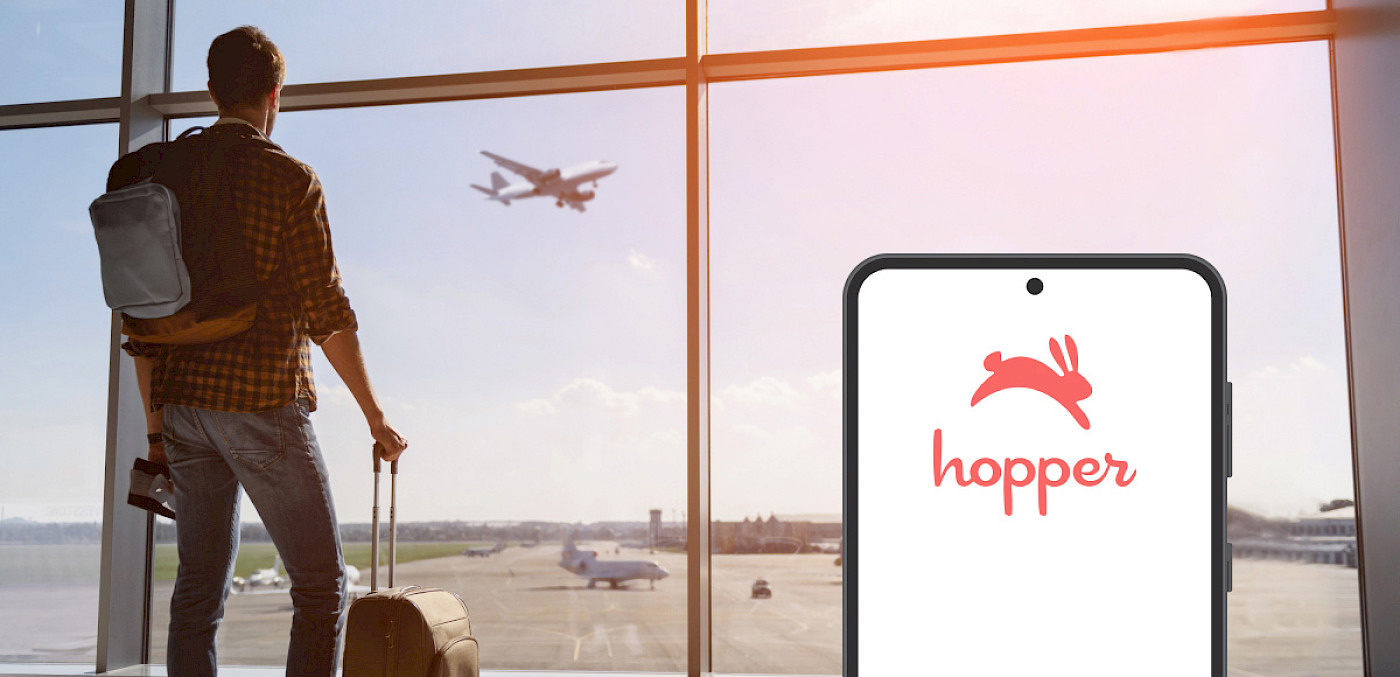Hopper scores with holiday travel demand, redwood materials partners with panasonic
Investors in a slew of tech-forward travel-related startups may find some benefit from the strong holiday travel season that’s shaping up.
As CNBC wrote in a recent article, travel spending in the U.S. has soared, due to a decline in COVID concerns and flexible office policies that are allowing Americans to travel more and book jaunts well into the traditional offseason. And this pick-up in activity has come despite a year of outsized inflation that has put a strain on household budgets.
A resurgent travel industry is good news for Hopper, a fast-growing online travel booking company, and two peer-to-peer car-sharing companies, Turo and Getaround.
Canada-based Hopper, a private company that is reportedly on track to record $4.5 billion in sales this year, is one of the largest online travel agencies in North America with a reported 80 million downloads of its free app. Like Kayak, Expedia, and Priceline, the company functions as a flight price search engine: it pulls in flight pricing from all the airlines to show customers which have the cheapest fares. Earlier this month, Hopper announced that it had secured a $96 million investment from credit-card company Capital One, which previously led Hopper’s Series F round that raised $170 million in March 2021.
Last year, Hopper and Capital One launched Capital One Travel, a Hopper-powered travel booking portal combining cardholder benefits with fintech products like price freezes, price drop protection, and cancel-for-any reason insurance.
The revival in travel is also creating opportunities for two San Francisco based car-sharing services that are providing an alternative to the traditional rental-car business. In October, Turo, a “peer-to-peer’’ car sharing platform that has been described as the Airbnb for cars, will expand to Australia before the end of the year. In June, Turo expanded to France after acquiring competitor OuiCar, and the company expanded to New York state in a move that aims to cater to post-COVID travel needs.
Turo filed to go public in January this year, but so far has yet to make its debut. Thus far, the company has raised over $500 million in funding over 13 rounds, according to TechCrunch.
Getaround, a rival to Turo, is expanding its reach through a partnership with Kayak. The partnership will allow travelers searching for cars or trucks on Kayak to book vehicles for as little as an hour through Getaround. In May, Getaround agreed to go public via a special purpose acquisition company or SPAC. The deal is expected to close next month. Last month, the company announced that it had raised an additional $140 million in a Series E financing, bringing its total funding to nearly $600 million.
As the U.S. economy gets greener, a growth in consumer demand for travel-related automobiles will create additional demand for electric vehicles. On that score, TechCrunch reported last week that Redwood Materials, an electric-vehicle battery materials and recycling startup based in Nevada, has landed a multibillion-dollar deal to supply battery components to Panasonic as efforts accelerate to build a domestic supply chain in North America to support an expected growth in EV sales. Redwood said it will supply Panasonic Energy of North America with cathode material for EV battery cells produced at a new factory currently under construction in Kansas. The deal, the largest yet for Redwood, is valued at several billion dollars, according to TechCrunch.





